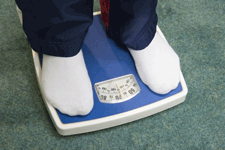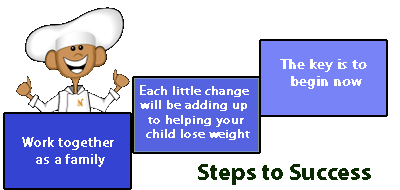Why You Should Not Put Your Child on a Fad Diet
One of the best strategies to keep your child at a healthy weight is to ensure your entire family is eating a healthy diet and staying active together.
If your child is overweight, taking certain measures now is important to protect their health as they grow and develop. With that said, it is important to realize that many overweight children grow into their extra pounds as they get taller.
Diets that do not include a variety of nutritious foods or do not offer enough calories can be very dangerous for kids. Some types of dangerous diets are called "fad diets" or “crash diets.” These diets usually guarantee quick weight loss and require restrictive eating.
When making changes to your child’s eating habits, it is important that you do not put your child on one of these diets. They can be dangerous to your child’s growth because they often do not offer an appropriate amount of nutrients. Other reasons why thesediets can be harmful:
-
If kids are not getting the nutrients they need, they will feel tired and not have the energy to stay alert and perform well in school.

-
These diets may cause your child to feel they are being singled out and treated differently than their peers.
-
They may begin feeling ashamed and self-conscious, which can be very harmful to their self-esteem
-
Restrictive eating can make kids more likely to overeat, when they able to. This can lay the groundwork for using food as a source of reward or punishment. This may cause your child to develop an unhealthy relationship with food and more prone to developing an eating disorder later in life.
It is important to be sensitive to your child’s feelings and needs. Try not to nag or overly focus on their eating habits because this might backfire. Instead, praise your child for their efforts, however small they may be. Try to highlight the positive aspects of eating a healthy diet and exercising. For example, discuss the luxuries of having certain fresh fruit available or being able to play outside in the fresh air.
It is important to schedule regular check-ups for your child and seek professional support if you think your child may be overweight. Your child’s pediatrician, nurse, or dietitian can help determine if your child is overweight. During the visit, the health practitioner measures your child's height and weight and calculates their Body Mass Index (BMI). Practitioners may also work with you to develop a healthy diet for your child.
-
Encourage Healthy Eating Habits
-
Keep Your Child Active
To help your child achieve and maintain a healthy weight, lifestyle changes are needed. These are small, incremental steps that will happen gradually. Short-term drastic changes and fad diets are not a solution. The key components are establishing healthy eating habits, staying active, and getting professional support, when needed. These healthy measures can pave the way for your child’s success and lifelong good health.
Healthy Eating

Healthy Child

Written by Patricia O'Keefe Girbal
•
Written on Aug 06, 2010
•
Last updated on Oct 18, 2013



0 Comments